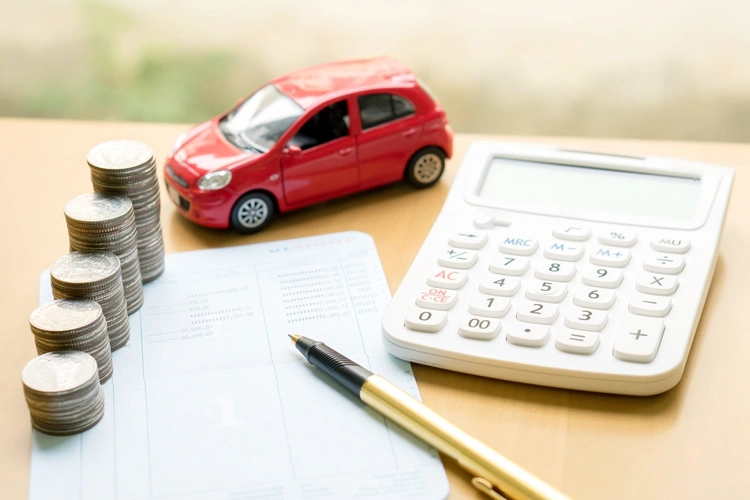What is car refinancing?
Car refinancing is the term used to describe taking out a new finance agreement to pay off the outstanding balance on an existing car loan. This allows you to switch your car finance but keep your car by seeking terms that are better suited to your needs. Typically, your current vehicle will serve as collateral and your new loan will be secured against it.
You don’t have to refinance with a different lender, but this is often the case, and the new lender will usually pay off your existing finance on your behalf as part of your contract with them. There are several reasons why you might want to refinance a car, and you can do it at any time during your car loan term, no matter whether you have a hire purchase (HP) or personal contract purchase (PCP) agreement.
Benefits of refinancing a car
Refinancing a car comes with many potential benefits. Car finance agreements are a big commitment that can involve signing up to pay set monthly payments for a period of up to five years. And a lot can happen in that time; after all, life is unpredictable, and your circumstances could change. Perhaps you’ve changed jobs or had a child and would like to lower your monthly repayments. Or maybe you’ve taken steps to improve your credit score over time and now might be eligible for a lower APR.
When you refinance, you may be able to secure a finance deal that better suits your life as it is now, rather than how it was when you signed your original agreement.
If your financial situation has improved, for example, you may be able to find car finance with a lower interest rate or shorten your loan term to clear the debt faster.
However, if you feel you’re paying too much for your existing finance or are struggling to make ends meet, you may wish to switch to a car loan with a longer term and lower monthly payments. Bear in mind that a longer loan term may mean you pay more interest overall.
You could also use a refinancing loan to put a joint car finance agreement into your name only or opt for a an unsecured personal loan to take immediate ownership of the vehicle so that you can sell or modify it straight away.
Should I refinance my car?
Refinancing a car isn’t the right choice for everyone and there are pros and cons to consider.
If your situation has changed and you need to change your repayments, find a loan with different terms and conditions, or alter your loan term, refinancing could be a good option for you.
However, a refinance loan can be a large financial commitment and you may wish to take some time to ensure its terms are suited to your circumstances. It could also be worth keeping in mind that if you choose to take out an unsecured loan – such as a personal loan – you’ll no longer be covered by Section 99 of the Consumer Credit Act 1974 and won’t be eligible to opt for voluntary termination.
Negative equity can also be a disadvantage when you wish to refinance a car. You’ll find yourself in negative equity if your car is currently worth less than the outstanding finance. This may mean that choosing to refinance your car may lead to you paying back more than the car’s value over time.
Am I eligible for a refinance loan?
If you think a refinance loan might work for you, your eligibility will depend on the lender, your vehicle, and your individual financial circumstances. Just like standard car finance loans, lenders take a range of different factors into account when determining whether you’re eligible for a refinance loan. Your credit score is just one of these factors, but if you’ve missed payments in the past and have a poor credit score, you might find it more difficult to find a deal. Even so, it’s not impossible, and there are lenders available that specialise in both negative equity and bad credit refinance loans.
Depending on the terms agreed on your current car loan, you may be asked to pay a fee to end the contract early. Some refinance lenders charge a setup fee. You may also want to keep in mind that opting for a longer repayment term might not save you money in the long run, as you could end up paying more in interest overall.
Consider checking your refinance loan eligibility with our online tool. While it’s not guaranteed, it can give you a good idea of what your repayments might look like so you can judge whether they’d be affordable or not.
What documents will I need for a refinance loan?
Each finance provider works slightly differently and may request different documentation as part of a refinance loan application. However, in most cases, you’ll need to supply:
- Proof of income (e.g., recent bank statements or payslips)
- Proof of address (e.g., a utility bill or council tax statement)
- Proof of ID (e.g., a passport or full UK driving licence)
You may also need to share details of your current vehicle, such as its registration or vehicle identification number (VIN).
Can I refinance a PCP balloon payment?
With a PCP car finance agreement, you’ll typically only borrow the amount that the lender predicts your car will lose over your loan term. This means that your monthly payments may be lower than they would be with other types of car finance, but you won’t automatically take ownership of the car when you reach the end of your loan term. Instead, you’ll have options: you can choose to return the car to the lender, use any positive equity as a deposit in a new PCP deal, or buy the car by paying the one-off balloon payment.
The balloon payment will be equivalent to the Guaranteed Minimum Future Value (GMFV) of your vehicle, decided at the start of your PCP loan term. Depending on the car you’ve chosen and the length of your original loan term, this amount could be hundreds or even thousands of pounds.
If you wish to take ownership of the car but can’t afford to pay the amount required in one lump sum, refinancing the PCP balloon payment could help. These loans are typically secured against the vehicle and will split your balloon payment into affordable monthly repayments over a set period. This means you’ll likely need to pay interest on the loan, which can make the balloon payment more expensive than had you paid it in one go. But PCP balloon refinancing could be the best solution for you if you want to own your vehicle but don’t have the savings available to pay.
Bear in mind that if you fall behind with payments on a secured car loan, the lender could repossess the vehicle.
Can I refinance a car if I have bad credit?
Nobody’s perfect and we know that life can often throw things in our path that derail our best intentions. If you’ve missed payments in the past, had a CCJ or been subject to an IVA, you may have a bad credit score. A poor credit score can make it more difficult to find a credit of any kind.
Even so, this doesn’t have to be the end of the road; there are lenders available that specialise in offering bad credit car loans. There are even lenders that can help if you’ve found yourself in negative equity, although your new loan will usually be based on the amount of outstanding finance remaining, rather than your car’s current value. If you have a poor credit score, you may also find that your refinance loan has a high interest rate that reflects the higher risk posed to the lender.
Will refinancing a car affect my credit score?
Refinancing a car works in a similar way to financing a car, and a credit check will usually be part of the application process. When you apply for refinancing, lenders or car finance brokers may conduct a soft credit search to find out whether they can offer you an approval in principle. This won’t be visible on your credit report and shouldn’t affect your score.
However, if you choose to proceed with a refinancing option, a hard search will be carried out. This type of credit check will be noted on your credit report. Several hard searches in a short period of time could negatively affect your credit score.
When your refinance agreement is first issued, you may also see your credit score dip slightly as a large new loan has been added to your credit report. But if you make your repayments on time, this should lessen over time. It’s also worth noting that choosing to make your monthly payments more affordable through refinancing may make it less likely that you’ll fall behind or struggle to make repayments on time, which can also have a positive effect on your credit score.
How to refinance a car loan
Refinancing a car loan typically starts with a quote. You can complete an application form online or on your mobile phone; you’ll be asked to enter a few personal details, including your name, address history, date of birth, and employment circumstances. This information will be used to conduct a soft credit check to find out if you’re eligible for car finance.
If you’re happy with the terms outlined in your loan offer, you may decide to proceed. A dedicated account manager will be on hand to help with any required paperwork and further details needed. There’s no need to wait until you’ve reached a certain point in your loan term to make a refinance car loan application – you can start the refinancing process at any time.
Get Car Finance up to £100,000
- Check your eligibility without impacting your credit score
- No deposit needed
- Rates from 9.9%* APR
*Representative example: Borrowing £6,500 over 5 years with a representative APR of 19.9%, an annual interest rate of 19.9% (Fixed) and a deposit of £0.00, the amount payable would be £166.07 per month, with a total cost of credit of £3,464.37 and a total amount payable of £9,964.37. Rates may differ as they are dependent on individual circumstances. Subject to status. We're a credit broker, not a lender.
Disclaimer: All information and links are correct at the time of publishing.





